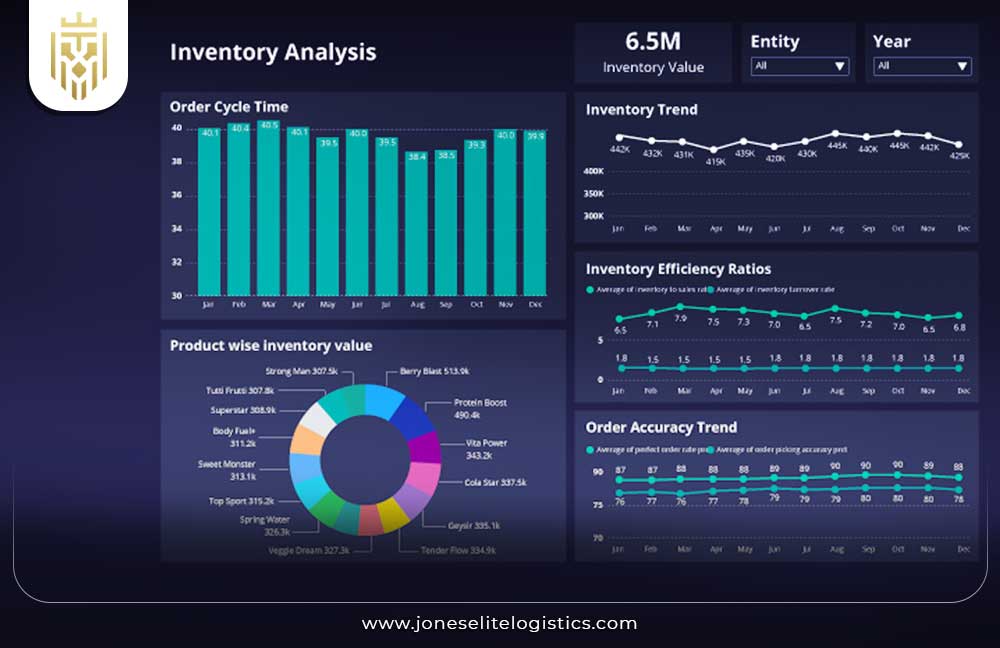What is Health Care Supply Chain Management?
Health Care Supply Chain Management is a critical process that involves obtaining, managing, and delivering medical supplies, equipment, and pharmaceuticals efficiently to ensure patient care, operational efficiency, and cost control while integrating stakeholders and modern technology to optimize the ideal supply chain for healthcare industry.
Importance of Health Care Supply Chain Management:
The importance of Health Care Supply Chain Management lies in its ability to identify weaknesses and enhance health outcomes. By utilizing advanced digital tools and multi-source data insights, supply chain issues can be effectively addressed, leading to optimized global health investments and robust supply chain resilience that supports effective patient care.

Steps to Integrate Technology into Healthcare Technology:
Key steps to integrate technology into the healthcare supply chain include alignment, assessment, analysis, and planning. These crucial steps ensure the optimal implementation of systems that enhance patient care and improve operational efficiency within the supply chain in the health care industry, creating a more effective healthcare environment.
Alignment:
Alignment in healthcare technology focuses on coordinating multiple providers to ensure timely and accurate care delivery. Achieving this requires interoperability and patient engagement, fostering a shared culture of responsibility and collaboration in the health care logistics landscape to maximize efficiency and care outcomes.
Assessment:
Assessment in healthcare technology integration involves defining clear objectives and establishing measurable KPIs. This process guides improvements and optimizes costs in the medical supply chain, ultimately enhancing patient care outcomes while addressing various supply chain issues and ensuring accountability.

Analysis:
Analysis within healthcare technology integration assesses current systems and patient needs comprehensively. It ensures that the chosen solutions align with organizational goals, mitigate risks effectively, and enhance operational efficiency in the healthcare supply chain to improve service delivery.
Planning:
Planning in Health Care Supply Chain Management focuses on designing effective strategies for the timely delivery of medical supplies. This includes detailed demand forecasting, managing supplier relationships, and ensuring compliance with regulations within the health care supply framework to support quality healthcare services.
Benefits of Health Care in Supply Chain Management:
Effective healthcare supply chain management reduces operational costs significantly, enhances departmental integration, and ensures efficient resource utilization. By boosting employee satisfaction and fostering wellness initiatives, it ultimately improves patient care and operational efficiency in the supply chain for healthcare to achieve better health outcomes.
Reduce operational costs:
Health Care Supply Chain Management reduces operational costs effectively by optimizing inventory management and leveraging advanced technology. This enhances overall efficiency and mitigates risks, ensuring effective resource utilization across the medical supply chain to deliver better healthcare services.
Improved Departmental Integration:
Through improved communication and optimized inventory management strategies, healthcare supply chain management enhances departmental integration considerably. It enables real-time insights for increased operational efficiency, effectively reducing costs within the supply chain in the health care industry and improving coordination.
Efficient Resource Utilization:
Efficient resource utilization in the healthcare supply chain ensures optimal inventory management and significantly reduced delivery times. By leveraging data for informed decision-making, it enhances operational efficiency and minimizes waste in the supply chain for healthcare, leading to better health services.

Satisfied Employees:
By promoting employee wellness and reducing absenteeism, healthcare supply chain management fosters employee satisfaction across the organization. Implementing continuous improvement strategies effectively lowers healthcare costs and boosts employee morale in the medical supply chain, contributing to a positive workplace culture.
Automation and AI in Health Care Supply Chain:
Automation and AI significantly enhance the health care supply chain by utilizing predictive analytics and optimizing inventory management processes. This reduces manual tasks, enhances quality control, and improves operational efficiency across healthcare supply chains, benefiting patient care significantly.
How can businesses leverage technology to improve healthcare supply chains?
Healthcare businesses can leverage technology by utilizing automation, AI, and data analytics effectively to streamline supply chain processes and enhance operational efficiency. Implementing blockchain and IoT enhances demand forecasting and improves the overall efficiency and security of the healthcare supply chain while ensuring patient safety.
FAQs
1) What is the Health Care Supply Chain Management?
Health Care Supply Chain Management involves obtaining, managing, and delivering medical supplies, equipment, and pharmaceuticals, ensuring efficient patient care, operational effectiveness, and cost control within the healthcare industry.
2) What is the importance of the healthcare supply chain?
The importance of the healthcare supply chain lies in optimizing resources, improving patient outcomes, minimizing costs, and enhancing operational efficiency by ensuring timely availability of medical supplies and equipment.
3) What are the Steps to Integrate technology into healthcare Technology?
The steps to integrate technology into healthcare technology include alignment, assessment, analysis, and planning, which ensure optimal implementation, improve patient care, and enhance operational efficiency in healthcare systems.
4) What is healthcare automation?
Healthcare automation refers to using technology to streamline processes, reduce manual tasks, and improve efficiency in healthcare operations, enhancing accuracy, patient care, and resource management within the healthcare supply chain.









